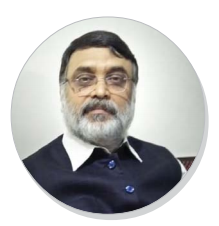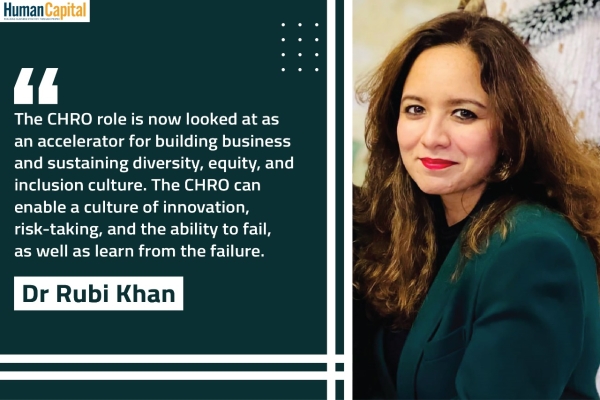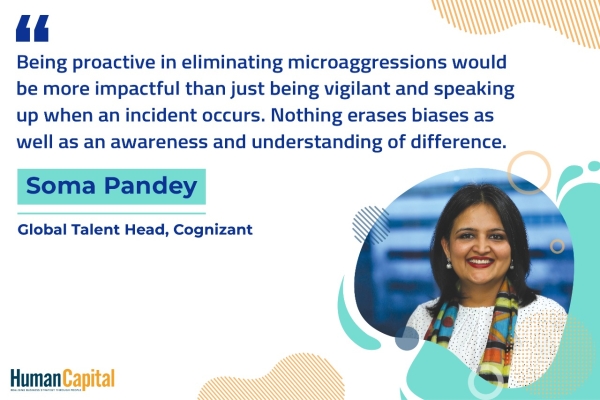There is a compelling case for senior executives in today's organisations to get an understanding over cognitive fitness and adequate emphasis should be given not only to physical fitness but also to cognitive fitness.
Neuroscience has made its foray in the domains of Management, Leadership Development, and Executive Education. Brain research has brought about a momentous and a paradigm shift, and has enabled us to understand the functioning of the brain in great depth, and it also includes cognitive fitness among executives.
Executives are burdened with work pressures, performance, and fulfilling KRAs, and therefore, it is equally important for them to develop an awareness of ABC (Affective, Behavioural, Cognitive) processes of Executive Effectiveness. Affective and behavioural processes have been given enough importance for a long time, and these aspects are generally taught in Executive Development programmes. Since the recent past, adequate attention is being paid to the subject of “Cognitive Fitness” in Executive Education programmes in global business schools. Therefore, it becomes important to get a broad understanding of cognitive fitness.
Understanding Cognitive Fitness
With increasing ages, a decline in the physical abilities of the executives is the law of nature. Many organisations provide on-site gymnasiums and health centres and create an opportunity for the executives to remain fit and healthy. Similarly, executives, with growing age, develop issues pertaining to the human brain and cognitive skills. Needing more time to process information, lack of alertness, increased reaction time, decreased concentration, inability to connect the dots, overlooking appointments or social engagements more often, missing out the train of thought or thread of conversation, increasingly overwhelmed by making critical decisions are some of the features of cognitive decline.
Cognitive fitness can be defined as the ability to learn, reason, recognise, remember, communicate, and adapt newer thinking and decision-making processes. The core cognitive skills are sustained attention, response inhibition, speed of information processing, cognitive flexibility and control, multiple simultaneous attention, working memory, category formation, and pattern recognition. And these collectively form executive abilities. Research has indicated that if the executive is cognitively fit all through his/her life, the better equipped their brain will be against the perils of ageing, and enable them to prevent specific brain problems from occurring in the first place.
Cognitive fitness is the sine qua non for executives for a rewarding career. A wellknown body for neuroscience research has documented that declining cognitive processes is a concern that can be addressed effectively.
Good brain health results in effective brain function and cognitive fitness.
The concept of neuroplasticity
Brain is an interactive system with synaptic transmissions between neurons. Tasks that stimulate one part of the brain can easily stimulate several other parts of the brain. In this context, it becomes pertinent to understand the concept of neuroplasticity. Neuroplasticity is one of the pivotal discoveries in neuroscience. An understanding of the functions of the brain translated and transformed the pathways of executive development. Teaching and training the executives over neuroplasticity can have a huge impact. The central tenet of executive education is to educate how the brain changes during learning. Neuroplasticity is the ability of the brain to change, remodel, and reorganise for the purpose of better ability to adapt to a new situation. Neural networks are not fixed, but occur, disappear, and reoccur in a dynamic manner. Repeatedly, practising an activity will help in forming new neuronal circuits. Once we stop practising a certain activity, the brain will redirect neuronal circuits by a wellknown “use it or lose it” theory. Santiago Raman y Cajal, the Father of modern neuroscience, has aptly quoted, “Every man can, if he so desires, become the sculptor of his own brain.”
Strengthening one’s cognitive abilities
Neuroscientists have indicated that the activities mentioned below will help strengthen the cognitive muscle in executives:
1. Develop other handedness:
Writing every day with the nonpreferred hand for a few minutes. Also brushing with the nonpreferred hand at least once a week while ensuring that one does not hurt his/her gums. Using a mouse with the non-preferred hand while operating a computer may stimulate the brain.
2. Expanding one’s reading universe:
Reading subjects that are not part of one’s regular mainstream work.
3. Playing word games and doing puzzles enhances one’s brain stimulation
4. Memorising a poem will stimulate cortical pathways in the brain.
5. Learning new technology, new language, musical instruments will help in doing mental gym resulting in the creation of new neuronal pathways.
6. Doing mathematics calculations by hand and avoiding the usage of a calculator also helps.
7. Managing by walking around will make executives to get into unfamiliar territory and broaden their perspective.
8. Visualising, imagining, and theorising function as deep stimulation to one’s brain.
9. Watching TV in mute mode and figuring out what happens also enhances brain stimulation.
10. Practising by expressing various emotions in front of the mirror.
11. Counting numbers backwards and playing chess with an intelligent individual is a good cognitive fitness exercise.
12. Getting into the old habit of handwriting every day for a few minutes also benefits.
13. Tackling with small fix-it jobs which will make you to think through will help you gain.
14. Creativity, innovation, and new initiatives matter not only in the development of an organisation as also an individual’s cognitive development.
15.Memory minerals/foods/ nutrients: Garlic enhances spatial memory. Egg white facilitates verbal memory. Apples and beans help in increased alertness for learning.
16.Vitamins that improve thinking: Vitamin B1 helps in attention and reaction time. Vitamin B6 enhances working memory. Vitamin B12 improves in concentration, working memory, and learning. Vitamin C facilitates in general memory.
17. Exercise enables the release of neurotransmitters, which are the essential life energy of the brain. Brain is not an island. The Human system is highly connected and interconnected. Biochemical changes flow through your blood vessels and reach your muscles, your joints, your bones and your brain.
18. Practising sleep hygiene: Quality sleep functions as restoring mechanism for human brain
Eclectic perspectives have revealed that cognitive fitness intervention should incorporate exercise, stress reduction, social interaction, nutrition, sleep and stimulating activities. Reportedly, shaping and securing good mental fitness is not a dream come true.
As Roderick Gilkey And Clint Kilts (November 2007) put it, “Cognitive fitness can affect every part of life. On an organisational level, it may be the ultimate lever for sustainable competitive advantage.”
In view of the above, there is a compelling case for senior executives of today’s organisations to get an understanding on cognitive fitness and adequate emphasis should be given not only to physical fitness but also to cognitive fitness. Intellectual inputs on “cognitive fitness” from psychologists should be provided to senior executives in the organisation by the leaders of learning & development. As a strategic initiative, all key personnel in an organisation must undergo a mandatory learning programme on cognitive fitness in view of its efficacy and overarching brain health benefits.
Has COVID-19 forever changed the way we live and work?
Trending
-
SBI General Insurance Launches Digital Health Campaign
-
CredR Rolls Out 'Life Happens' Leave For Its Employees
-
Meesho Announces 30-Week Gender-Neutral Parental Leave Policy
-
Microsoft Unveils Tech Resilience Curriculum To Foster An Inclusive Future
-
60% Indian Professionals Looking For Job Change Due To COVID: Survey
-
SpringPeople And Siemens Collaborate For Digital Transformation Push
-
86% Professionals Believe Hybrid Work Is Essential For Work Life Balance: Report
-
Almost 1 In Every 3 People's Personal Life Affected Due To Work Stress
-
Meesho Rolls Out Reset And Recharge Policy For Employees
-
80% Of Talent Leaders & Academics Say Pandemic Changed Skill Needs For Youth: Report
-
Hero Electric Rolls Out 'Hero Care' Program For Employees
-
Human Capital In Collaboration With ASSOCHAM Hosts Virtual Conference
-
IKEA India, Tata STRIVE Collaborate To Create Employability And Entrepreneurship Opportunities
-
SAP India, Microsoft Launch Tech Skilling Program for Young Women
-
DXC Technology, NASSCOM Collaborate For Employability Skills Program
-
Lenskart To Hire Over 2000 Employees Across India By 2022
-
Mindtree Launches Learn-and-Earn Program
-
Tata AIA Extends 'Raksha Ka Teeka' To Its Employees
-
Swadesh Behera Is The New CPO Of Titan
-
NetConnect Global Plans To Recruit 5000 Tech Professionals In India
-
Hubhopper Plans To Hire 60% Of Indian Podcasters By 2022
-
Corporate India Needs More Women In Leadership Roles: Report
-
Aon to Invest $30 Million and Create 10,000 Apprenticeships by 2030
-
Tech Mahindra Launches ‘Gift a Career’ Initiative for Upskilling of Youth
-
40% Women Prefer Flexible Working Options in Post-COVID World: Survey
-
3 out of 4 companies believe they can effectively hire employees virtually: Report
-
Vodafone , CGI and NASSCOM Foundation launch digital skills platform
-
Odisha: Bank, postal employees to deliver cash for elderly, differently-abled persons
-
Skill India launches AI-based digital platform for "Skilled Workforce"
-
Hiring activity declines 6.73% in first quarter: Survey
-
70% startups impacted by COVID-19 pandemic
-
Bajaj Allianz Life ropes in Santanu Banerjee as CHRO
-
Over 70 Percent MSMEs look at cutting jobs to sustain businesses
-
93 Per Cent employees stressed about returning to office post-lockdown
-
Johnson & Johnson India announces family benefits for same gender partners
-
Indian firms turning friendly towards working mothers
-
Welspun India names Rajendra Mehta as new CHRO
-
Wipro partners with NASSCOM to launch Future Skills platform



Human Capital is niche media organisation for HR and Corporate. Our aim is to create an outstanding user experience for all our clients, readers, employers and employees through inspiring, industry-leading content pieces in the form of case studies, analysis, expert reports, authored articles and blogs. We cover topics such as talent acquisition, learning and development, diversity and inclusion, leadership, compensation, recruitment and many more.
Subscribe Now













































Comment